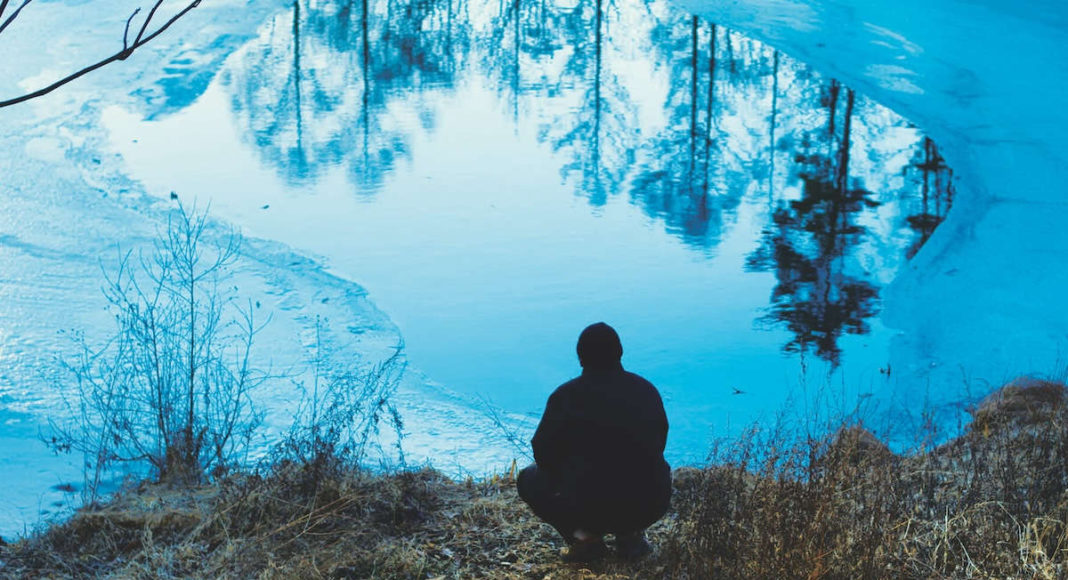In a Japanese mountain community not far from Tokyo, a quiet, unassuming handyperson named Takumi (played by Omika Hitoshi) lives with his eight-year-old daughter, Hana (Nishikawa Ryô). While Hana attends the village school, her father engages in a number of back-country odd jobs, including gathering fresh water and wild wasabi for a local udon restaurant—the clear mountain stream water gives the udon a unique flavor.
Filmmaker Hamaguchi Ryûsuke’s ominously titled drama, Evil Does Not Exist, takes care to show that Takumi and Hana’s simple, idyllic family life depends on observing and interacting with the natural environment. But their lifestyle is fragile, almost too good to be true.
A Tokyo developer wants to build a “glamping” tourist attraction in the nearby forest where Takumi and Hana live, and has sent a pair of salespersons to convince the villagers it’s a bright, money-making idea. None of them are buying that argument, and the meeting dissolves into a tense standoff.
In some eco-dramas, such a disagreement might lead to vigorous protests or even open violence, but that’s not how director Hamaguchi (Drive My Car) operates. Instead, the poison represented by a thoughtlessly planned commercial development seeps into the village slowly, silently, in a careful procession of disturbing signs and symbols.
Shotgun and rifle blasts from deer hunters echo through the forest. Residents begin to worry about fire prevention and the water supply. The developer—which uses the juvenile corporate brand name Playmode—doesn’t seem to comprehend what Takumi means when he warns that the proposed luxury camping project is located on a deer trail. The main thing Playmode is concerned about is taking advantage of government pandemic subsidies to finance the development.
A member of the Playmode sales team, Ms. Mayuzumi (Shibutani Ayaka), starts to have personal doubts about tromping in the wilderness after listening to Takumi and his friends’ passionate objections. Her associate, Takahashi (Kosaka Ryûji), comes to more or less the same realization, even though it means they could both lose their jobs. However, there’s also a sinister underlying force at work in the mountains.
The director, his screenwriting collaborator Ishibashi Eiko—she’s also the composer of the haunting musical score—and cinematographer Kitagawa Yoshio install the subtlest whisper of impending dread to the story, as in the long, long Terrence Malick-style tilted-up tracking shot of trees that introduces the action. And the recurring glimpse of a decaying deer carcass. The signs are obvious to Takumi the woodsman and Hana the headstrong schoolgirl.
Hamaguchi is not afraid to quote classic Japanese films to make his point about the spiritual dangers of daring to despoil the landscape. The slyly humorous wood-chopping showdown between Takumi and Takahashi is plucked from Kurosawa Akira’s Seven Samurai.
And when Takumi takes a moment to ponder the frozen water of a pond in the midst of searching for his daughter, Hana, who has suddenly gone missing, we’re reminded of the sad fate of Anju, another lost girl, in Mizoguchi Kenji’s Sansho the Bailiff. The point seems to be that certain spirits are alive in the woods, and that they’ve always been there.
Evil Does Not Exist also shares the mood of ecological peril that filmmaker Kurosawa Kiyoshi displayed in his 1999 films, Charisma and Barren Illusions. The “Other Kurosawa” seems to prefer thoroughly supernatural origins for the bizarre occurrences that upset the environment.
For Hamaguchi, the veil of doom descends on the otherwise sweet little community as the direct result of the all-too-human profit motive. It’s a natural reaction to the thousands of tiny transgressions human beings have visited on this splendid setting.
Evil Does Not Exist, an outdoorsy chamber piece, uses its understatement wisely. For every insult toward the earth, the natural world exacts a price. Not even Takumi, the humble holy man, can stop it. If Drive My Car was the tragedy of a modern man, Evil Does Not Exist is modern man’s comeuppance, served magnificently chilled.
* * *
In theaters











